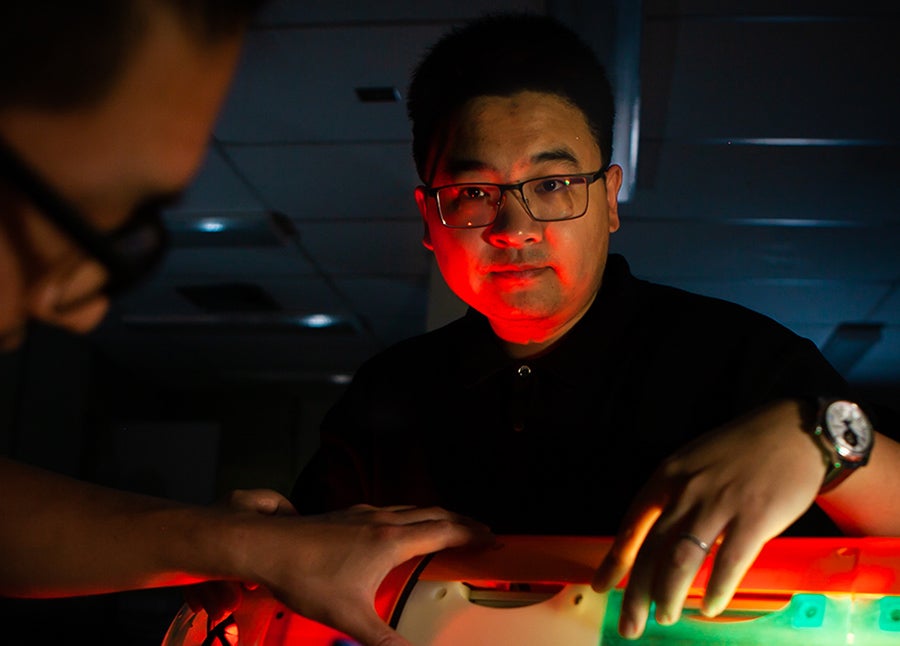“It’s going to be so much easier to test our platforms in the larger and deeper tank. And with the motorized crane and gantry, we’ll need less manpower to operate the system.”

Mingxi Zhou
—Assistant Professor of Oceanography
One of the major factors that convinced Mingxi Zhou to join the faculty of the Graduate School of Oceanography in 2018 was the Campus Master Plan, which highlighted the investment the university intended to make into marine robotics and instrumentation. “With the new buildings, new facilities and the new ship, I know there is huge potential here for the kind of work I’m interested in,” said Zhou, an assistant professor of oceanography.
In the three years since he was hired, Zhou has developed an extensive research program focused on improving the navigation and autonomous operation of marine robotics through the use of artificial intelligence. He is currently working on a project to develop unmanned vehicles that can navigate beneath sea ice and around icebergs at close range. Another project involves adapting intelligent software on commercially available underwater vehicles for mapping the seafloor.
“With the new Ocean Technology Building, all faculty who are developing ocean instrumentation and robotics will be located together, which will help us network and provide more opportunities for collaboration,” Zhou said. “There will also be more lab and office space to accommodate more graduate students.”
Zhou and his colleagues have also been involved in designing some of the new tank facilities that will be in the building, ensuring that their particular needs will be met. “It’s going to be so much easier to test our platforms in the larger and deeper tank,” he said. “And with the motorized crane and gantry, we’ll need less manpower to operate the system.”
